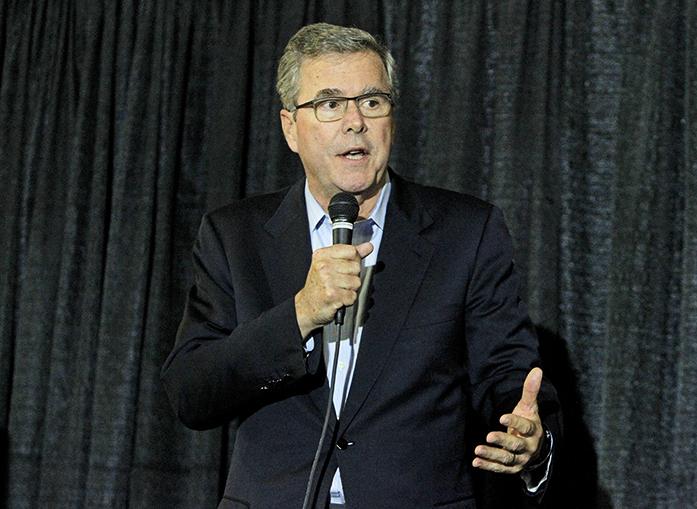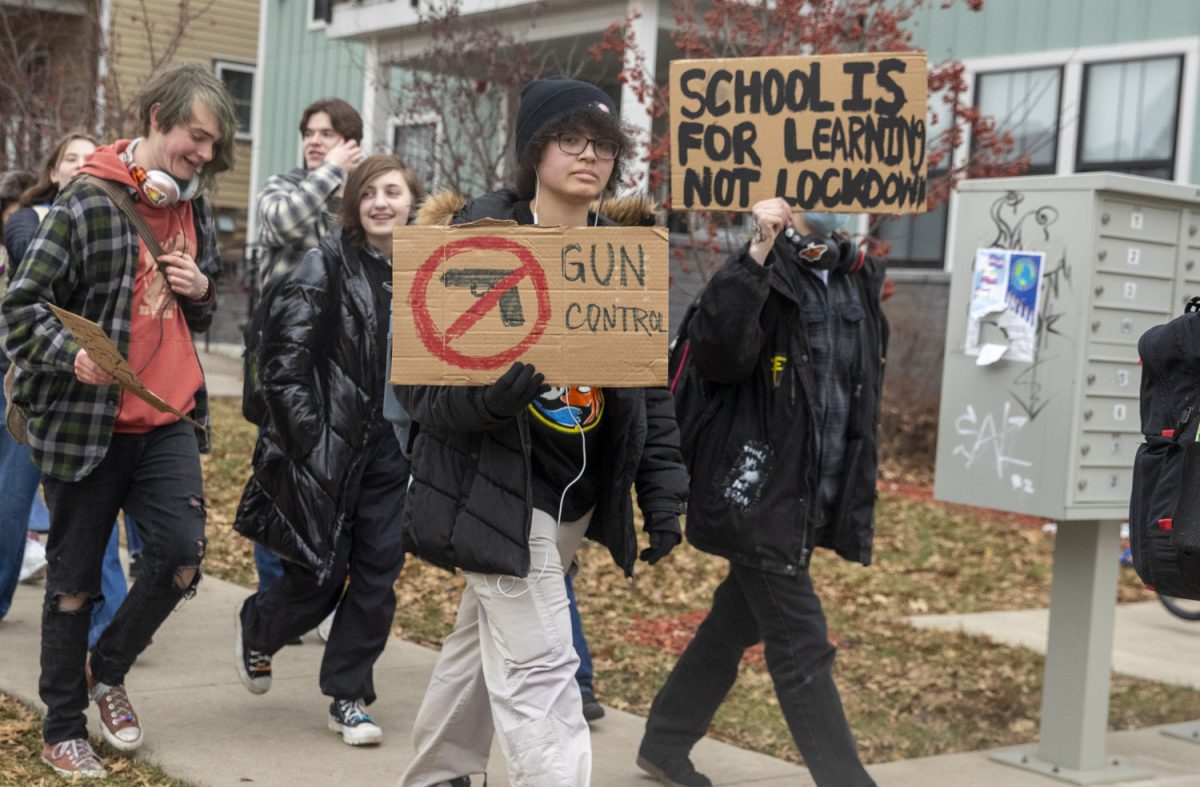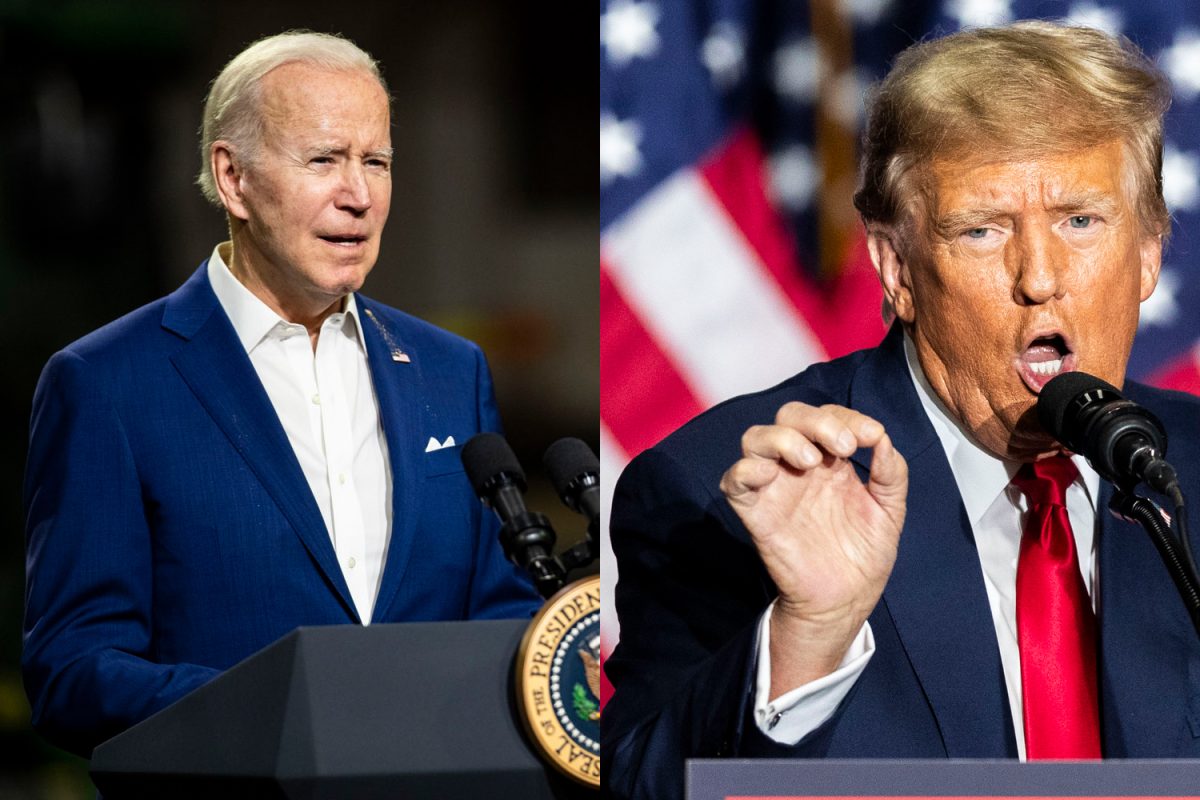On the day that former Republican presidential contender Jeb Bush officially announced his campaign, June 15, 2015, America seemed to be his oyster. The candidate hardly had to do any real campaigning to become the “presumed frontrunner” among pundits and, most importantly, the political establishment. Some had already resigned themselves to the believed inevitability of a Clinton vs. Bush race.
A photo by Stephen Crowley of the New York Times, taken before a cheering crowd at Dade College in Miami, encapsulates the moment perfectly. Bush is beaming, taking in the view of energized supporters sporting signs proclaiming in bright red: “Jeb 2016.” The snapshot captures Bush in midair; both of the candidate’s feet are off the ground, his legs mid-stride. Not only is he proud, he’s literally leaping for joy.
Eight months and countless disappointments later, Bush officially declared the end to his bid for the Republican nomination on Feb. 20 after failing to make the top three choices for primary and caucus voters in South Carolina, New Hampshire, and Iowa.
In an election cycle dominated by antiestablishment rhetoric, most recently from Donald Trump’s assertion that the George W. Bush administration had lied about the rationale for war in Iraq, the news that Bush would suspend his campaign is perhaps not a shock. Yet when we consider just how many resources (both material and intangible) were poured into his campaign, the failure of Bush offers a case study into the American electorate and the arrogance of an elite political class that couldn’t read the writing on the wall.
The most obvious place to start would be the sheer amount of cash that Bush’s Super PAC “Right to Rise” has spent on his campaign: $86 million, according to the nonpartisan Campaign Finance Institute. Others have a different count; opensecrets.org puts the amount spent at just shy of $60 million (the Super PAC had reportedly raised $118 million in total).
Much of this sum came from the donations of wealthy donors, who evidently made the mistaken assumption that the Bush family name would carry weight in the 2016 election. Of donors who contributed more than $200 to “Right to Rise,” the average contribution was $26,928. The highest? Starr Insurance at $10 million.
Spending and fundraising on behalf of Bush far outweighed that of any other candidate this election cycle. It was more than double that of Hillary Clinton ($47.9 million raised from Super PACs) and Sen. Ted Cruz ($42.8 million). And yet the results were abysmal. Ever since Bush began sparring with Trump, his popularity seemed to deflate.
Perhaps he felt dogged by Trump’s signature jab that Bush was “low-energy.” The remark stuck with Bush, who brought it up in subsequent Republican debates. “It’s very high-energy, Donald,” Bush said, referring to his preferred Secret Service code name: “Everready.” He never really got out of his mud-fight with the New York real-estate tycoon, who outclassed him in that environment.
Perhaps it was his awkward attempts to connect with voters that simply fell flat. He struggled to put on a hoodie in a video series dubbed “#JebNoFilter.” He asked an audience in New Hampshire to “please clap” (they obliged).
But maybe it was something other than the candidate himself. Maybe, Bush’s demise came from something beyond his control: an American electorate sick of being told whom to support. In 2015, Bush convinced the political elite that his primacy would be unquestioned. But his campaign forgot to account for the attitude of the American electorate: those that wanted change, not stasis. They didn’t see the group of voters that, like a hibernating bear, lay dormant until they were awakened by the promise of a fresh, new world.









